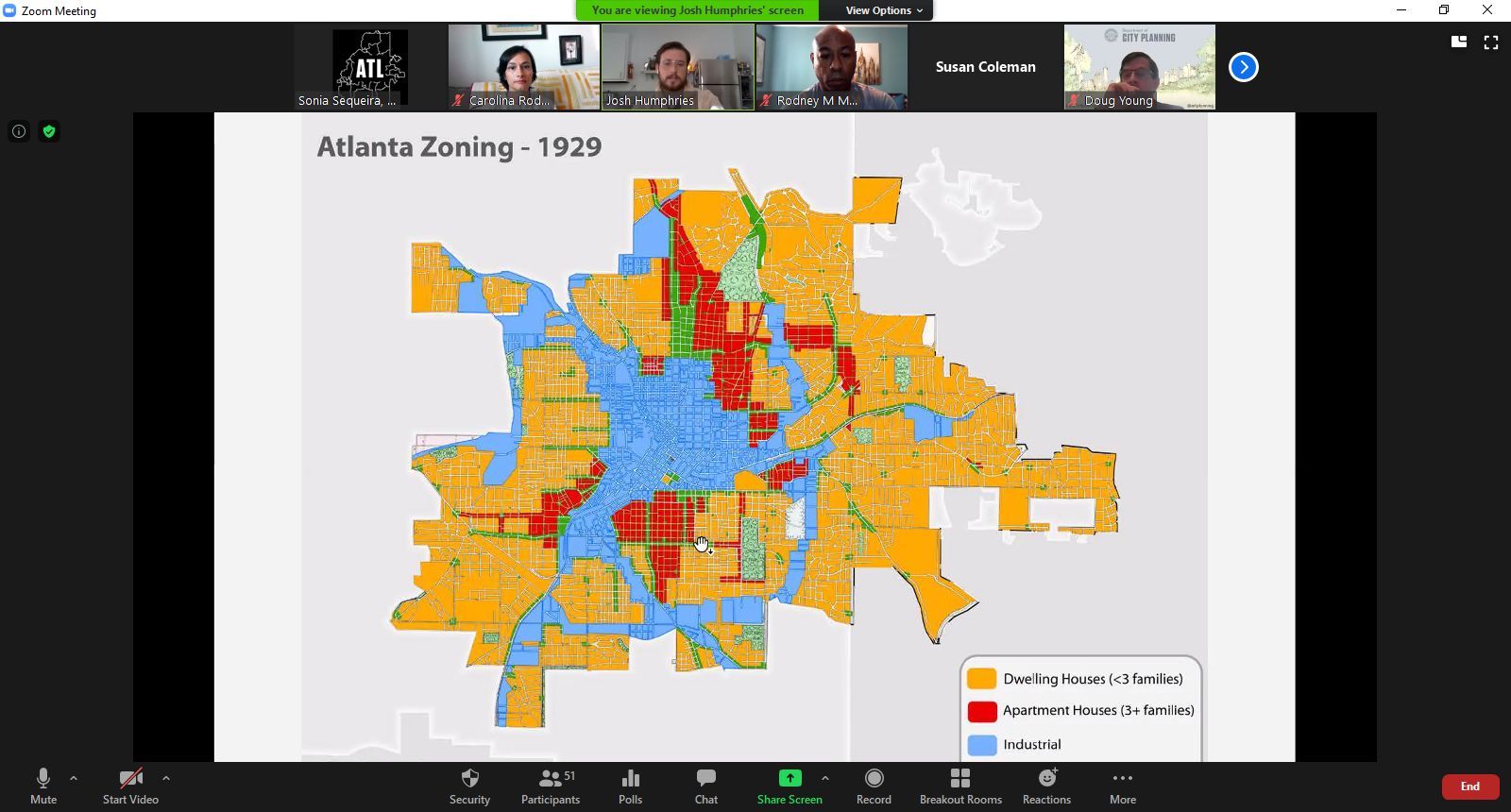Book Club Week 2 Recap: Redlining and Inequality in Atlanta Today
by Kendra Taylor, Project Manager, Policy Research and Analysis, Office of Housing and Community Development
For our second week of book club, we focused on the history of redlining in Atlanta and its relationship to present-day segregation and inequality. The goal of the session was to provide an overview of how the Federal Housing Administration systematically denied insuring mortgages in predominantly Black neighborhoods in Atlanta and how this is related to current patterns of racial and economic segregation. In doing so, we sought to contextualize problems that the City faces. Because we are largely not taught the history of government’s role in inequality, when we look at problems today like segregation, we have an incomplete picture.
After summarizing some key points from The Color of Law, we broke out into small discussion groups where we explored how housing policy shapes inequality in Atlanta. Several themes emerged in the discussion, including that, 1) to our detriment, the history of the government’s role in inequality and segregation is not taught 2) that race-neutral policies can indeed have racially disparate impacts, and 3) personal preferences also play a role in segregation. When thinking about how race-neutral policies are not so, the discussion group pointed to how applicants are denied mortgages at different rates depending on race, and therefore wealth is developed unevenly. Similarly, there are disparities in interest rates by race. These and other concrete examples got us thinking about the contradiction of “colorblind” public policy.
While much of the focus was on how government policies shape inequalities in our City, we also reflected on personal preferences for living in segregated environments. For example, we talked about how “neighborhood character” is used in planning and by residents to discuss neighborhood demographic change. We thought about how “preserving neighborhood character” is often used as a euphemism for preserving the racial and economic composition of a neighborhood and its associated schools. Since we live in such segregated neighborhoods, there can be fear of the unknown and stereotypes about different racial/ethnic groups.
As a closing thought, the group reflected, now that we have a greater understanding of our history, what will we do? One person asked, “do we have the willpower now that we know [about our history] to do something about it?”. The book club is one way the Department of City Planning is seeking to engage with the public about how local policy has, and continues to be, critical in shaping inequality. But a key concern of the group was, while we may be in a discovery phase, it is important that we move into a policy phase. Restorative policies and remedies that can intentionally establish equity and inclusion are needed. With that in mind, we are considering the ways policies from the 20th century are still with us today, and how what we do now will matter far into the future.


